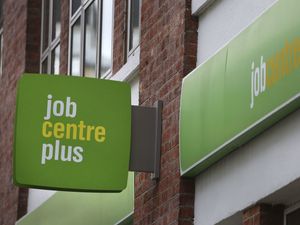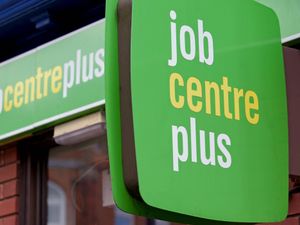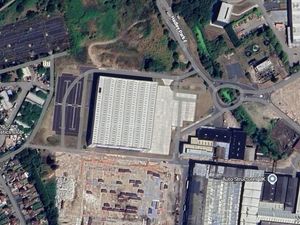Shropshire landlord praises furlough scheme for saving jobs of skilled employees
The Government’s response to the Covid crisis has provoked many different reactions, but the one aspect which attracts almost unanimous praise is the furlough scheme.
The system, brought in as the first lockdown came into force 12 months ago, provided unprecedented state backing for employers, allowing them to save the jobs of staff who had no jobs to do – with the aim of preserving the positions until the world gets back to some kind of normal.
As the third national lockdown comes to an end, across Shropshire more than 30,000 people are still on furlough – 20,200 in the Shropshire Council area and 10,100 in the Telford & Wrekin Council area.
Powys also has 7,300 people still furloughed.
The numbers have fallen since the height of the scheme last May, when there were 56,200 people supported in the county – 35,000 in Shropshire and 21,200 in Telford & Wrekin, and 13,100 in Powys – but the current level shows the challenge that continues to face businesses and families.
What is clear is that getting back to ‘normal’ will be far from straightforward.
Earlier this month the Government announced it would extend the scheme until September 30, covering up to 80 per cent of an employee’s salary for the hours they can’t work, up to a maximum of £2,500 per month.
For many firms the system has been key to looking after loyal, hardworking and skilled staff, making sure businesses are in a position to get started as smoothly as possible, when – and if – things return to ‘normal’.
James Hitchin, who runs the Alb pub and cocktail bar and Bombos in Shrewsbury, has used the scheme to support his staff and said the Government deserved credit for coming up with a system that looked after workers, and meant businesses did not have to lose valuable staff.
Mr Hitchin said the flexible furlough scheme – which allows previously full-time employees to work on a part-time basis – had been particularly beneficial.
He said: “I think the cleverest thing that came out of the budgeting around the Covid crisis has been furlough. In fact the cleverest thing was flexible furlough.
“The inconsistency of trade meant we were able to have staff for the needs of the business rather than to fulfil an obligation for hours.”
Fatigue
He added: “The key really has been that flexible furlough because Fridays and Saturdays have been consistently busy, but Monday to Thursday, we might not open Monday and Tuesday because it is so quiet and for the staff that would mean they miss out on two days earnings.
“But with the flexible furlough I can keep them on, and for two days they have furlough.
“It means we can fit the business around the ever-changing landscape, which has been difficult. One week you couldn’t go out if you were called Steve, the next you could only go out with a pork pie, so the goalposts were constantly changing.”
Mr Hitchin said that the system has also prevented losing skilled employees – such as sushi chefs or cocktail makers – which would have required considerable time to replace.
He said: “Instead of saying to some staff ‘you have a job, you don’t have a job’, we were able to keep staff employed without losing our full team.
“It is alright to be ruthless in business but what I have got, because I run cocktail bars and the kitchens are more specialist – with sushi chefs who take years to train – it would have cost a lot of money to retrain staff.
“I have staff who have worked for me for three, four, five years and I spent a lot of time finding those staff and I do not want to lose them just because they need to maximise their hours to make a living.”
It is yet to be seen how the economy bounces back as the plans to unlock gradually take effect, but there is also the issue of how people bounce back – having to readjust to full-time work after part time hours – or none at all.
Mr Hitchin said there is concern with how people return from furlough – particularly in the hospitality industry, with some having gone from 60-hour weeks down to nothing.
He said: “A friend of mine has referred to ‘furlough fatigue’. We have a lot of young, fit, strong people who were working a lot of hours – 50 to 60 hour weeks some of the chefs – and suddenly they are on lockdown and we will have to say ‘time to come back to work’, and that adjustment may not be that easy.”
Gratitude
Morris Lubricants, one of Shrewsbury’s oldest companies, expressed support and gratitude for the furlough scheme, which it used between April and July last year, but all employees are now back in work. The most staff that were furloughed at any one time was 45 out of the workforce of 132.
“We furloughed staff during the early part of the first lockdown as we had no idea how the business was going to be impacted by the pandemic,” said executive chairman Andrew Goddard.
“The furlough scheme was a great help as a safety net to protect jobs during that period of uncertainty.
“Through hard work and dedication from the Morris staff, the business has bounced back to a position of strength where we want it to be and we have continued to be busy throughout this period.
“Our business has proven to be particularly resilient and our staff have been excellent in responding to the challenges thrown up by the pandemic.”
Morris Lubricants has continued to supply quality lubricants to customers in the UK and around the globe throughout the Covid-19 pandemic.
The Trefeddian Hotel in Aberdyfi, a popular holiday destination for people from the Shropshire and the West Midlands, has furloughed 44 staff since last April, except for 75 days between August 7 and October 29, when the business was able to reopen.
General Manager William Moeran described the furlough scheme as “an absolute lifeline” for the staff and the award-winning, 59-bedroomed hotel.
“From a staff viewpoint, they needed to know they were going to get financial support. They received 80 per cent of their weekly wage and that has been invaluable to them financially and for their mental health and wellbeing.
“From a business perspective, it has been fantastic that the staff have been looked after because the hotel would have struggled to have supported them through all the lockdowns and still had enough budget to reopen the hotel successfully.”
The hotel is now eagerly awaiting a “roadmap” from the Welsh Government for the reopening of the hospitality industry in Wales. Mr Moeran hopes the Trefeddian Hotel will be allowed to reopen in May.
“The industry has requested six weeks’ notice because it will take that long to ensure that we have sufficient staffing in place and to re-engage with our suppliers.” he added.





